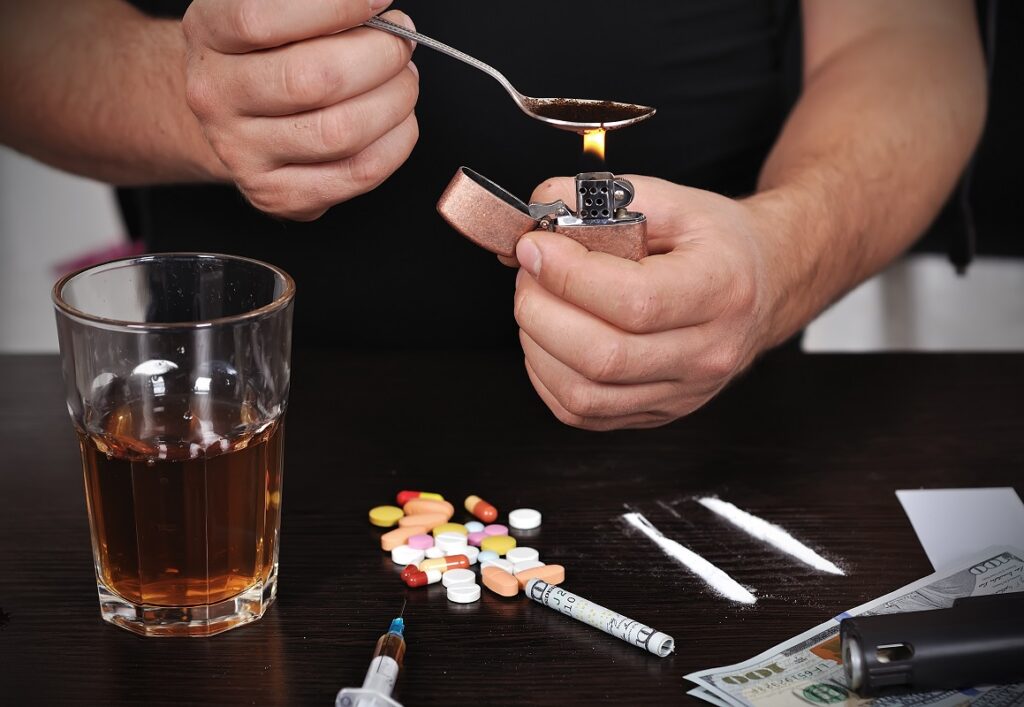Disclaimer: This website provides health information for educational purposes only and is not a substitute for professional medical advice, diagnosis, or treatment. Always seek the guidance of a qualified healthcare provider with any questions you may have.
- Develop a support system to help you stay on the path to recovery.
- Identify triggers and develop coping mechanisms to deal with them effectively.
- Practice self-care and be gentle with yourself during difficult times.
- Set realistic goals and celebrate successes along the way.
- Utilize residential drug treatment programs for intensive treatment and support.
Addiction can devastate your life, affecting your physical and mental health, relationships, and overall well-being. While it may feel overwhelming to overcome, you can successfully conquer addiction and reclaim your life with the right tools and mindset. Here are five tips to help you overcome addiction for good.
1. Develop a Support System
Developing a strong support system is one of the most critical aspects of overcoming addiction. Surround yourself with people who will encourage and motivate you to stay on the path to recovery. This may include family members, friends, or support groups such as Alcoholics Anonymous or Narcotics Anonymous. It’s essential to have people who understand what you’re going through and can provide a listening ear when you need it most.
Additionally, consider seeking professional help from a therapist or counselor specializing in addiction. They can offer guidance, support, and strategies to help you overcome addiction and prevent relapse.
2. Identify Triggers and Develop Coping Mechanisms
Identifying your triggers is essential to overcome addiction. Triggers can be anything that sets off a craving for drugs or alcohol, such as certain people, places, or situations. Once you’ve identified your triggers, it is crucial to develop coping mechanisms to deal with them effectively. Developing healthy coping mechanisms will help you stay on track and prevent relapse.
Here are the common triggers to be aware of:
Stress
Stress is one of the most common triggers for relapse. To cope with stress, try to identify its source and find ways to manage it better. Consider engaging in activities that promote relaxation, such as yoga or meditation, or exercising regularly. Make sure to get enough sleep every night and take time out to do something you enjoy each day.
Pressure from Others

Peer pressure can be a real challenge when it comes to maintaining sobriety. It’s important to stay strong and remember your commitment to remaining sober, no matter the circumstance or the people who may be pushing you in a different direction. Surround yourself with people who understand your goals and provide positive reinforcement to keep you on track.
Negative Emotions
Negative feelings such as anger, sadness, or loneliness can lead to relapse. When faced with these emotions, it’s important to focus on self-care and take the time to relax and recharge. Consider incorporating activities that bring you joy into your day-to-day life and utilizing counseling services if needed. Keeping a positive outlook is key to staying sober.
Accessibility
Easy access to drugs or alcohol is one of the biggest triggers for relapse. Limiting exposure is essential in maintaining sobriety; this may include avoiding certain places or people who may have access to substances or being proactive in developing an exit strategy when entering potentially risky situations. Staying mindful of your environment and making necessary adjustments are critical for maintaining abstinence.
3. Practice Self-care
Taking care of yourself physically and emotionally is critical to overcoming addiction. It’s essential to prioritize your health and well-being, including getting enough sleep, eating a healthy diet, and engaging in regular physical activity. Additionally, practice self-compassion and be kind to yourself. Remember, recovery is a journey, and setbacks are normal. Celebrate your successes and be gentle with yourself during difficult times.
4. Set Realistic Goals

Setting realistic goals is crucial to overcoming addiction. It is essential to have a clear vision of what you want to achieve and create a plan to get it. However, it’s important to be realistic and set achievable goals. Trying to do too much too soon can lead to frustration and, ultimately, relapse.
Start small and focus on making incremental changes. Celebrate your successes along the way and stay motivated by setting new, achievable goals as you progress in your recovery.
5, Utilize Residential Drug Treatment Programs
Taking advantage of reliable residential drug treatment programs can be effective if you’re struggling with addiction. These programs offer a safe, supportive environment where you can receive intensive treatment and support to help you overcome addiction. They provide a structured environment with 24-hour support, counseling, and therapy to help you address the underlying causes of addiction and develop healthy coping mechanisms.
Additionally, residential treatment programs provide an opportunity to disconnect from the stresses and triggers of daily life, allowing you to focus solely on your recovery. A residential treatment program may be an excellent option if you struggle to overcome addiction alone.
In Summary
Overcoming addiction is a challenging journey, but it’s a journey worth taking. You can successfully conquer addiction and reclaim your life by developing a support system, identifying triggers and coping mechanisms, practicing self-care, setting realistic goals, and utilizing residential drug treatment programs. Remember, recovery is a journey, not a destination, and asking for help along the way is okay.




